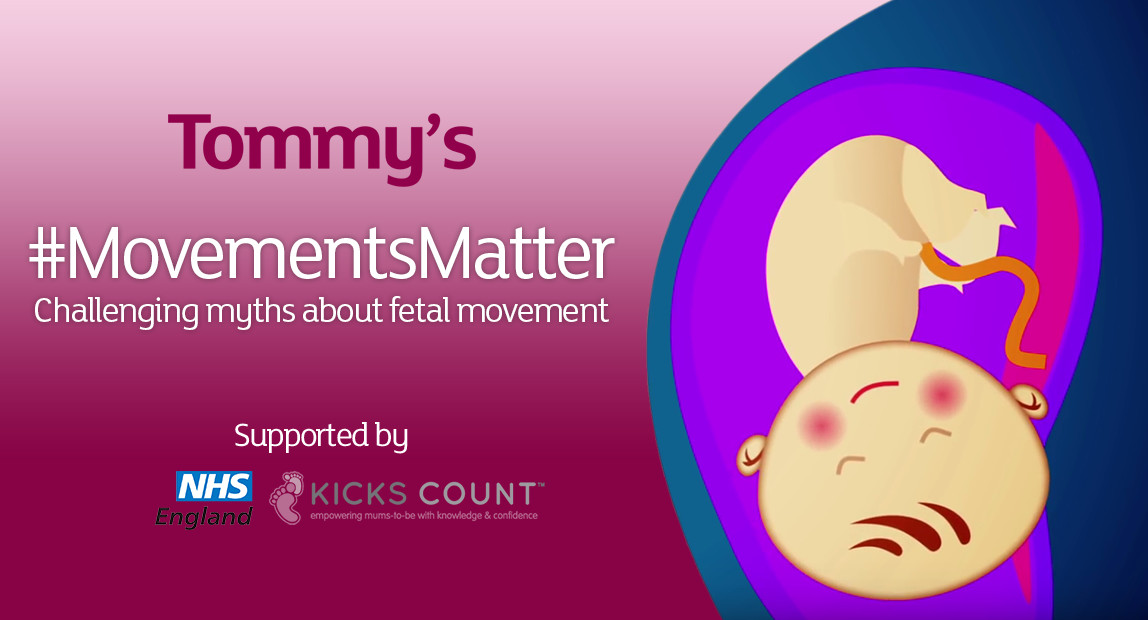Feeling your baby move is a sign that they are well
Most women usually begin to feel their baby move between 16 and 24 weeks of pregnancy. A baby’s movements can be described as anything from a kick, flutter, swish or roll. The type of movement may change as your pregnancy progresses.
DO NOT WAIT until the next day to seek advice if you are worried about your baby’s movements.
Please read the Tommy's leaflet at the bottom of this page or use the accessible format below.

Tommy's #MovementsMatter - Challenging myths about fetal movement
There is no set number of normal movements. From 16-24 weeks on you should feel the baby move more and more up until 32 weeks then stay roughly the same until you give birth.
It is NOT TRUE that babies move less towards the end of pregnancy or in labour.
You should CONTINUE to feel your baby move right up to the time you go into labour and whilst you are in labour too.
A reduction in a baby’s movements can be an important warning sign that a baby is unwell. Around half of women who had a stillbirth noticed their baby’s movements had slowed down or stopped.
If you think your baby’s movements have slowed down or stopped, speak to your midwife or maternity unit immediately (midwives are available 24 hours a day 7 days a week). There is always a midwife available, even at night.
- Do not put off getting in touch with a midwife or your maternity unit
- Do not worry about phoning, it is important you talk to a midwife or your maternity unit for advice even if you are uncertain. It is very likely that they will want to see you straight away
If, after your check up, you are still not happy with your baby’s movement, you must contact either your midwife or maternity unit straight away, even if everything was normal last time.
NEVER HESITATE to contact your midwife or the maternity unit for advice, no matter how many times this happens. There are midwives on duty in the maternity unit 24 hours a day.
Do not use hand-held monitors, Dopplers or phone apps to check your baby’s heartbeat. Even if you detect a heartbeat, this does not mean your baby is well.
Find out more at tommys.org
The above leaflet is also available in various other languages:


